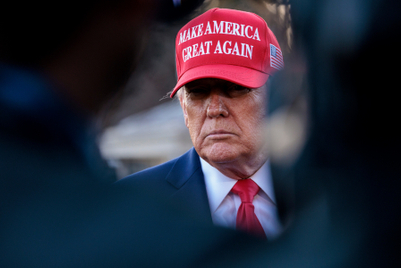Seven months have passed since the start of S4 Capital’s operations in India, but the Sir Martin Sorrell owned venture is unusually quiet in India.
Poran Malani, its director of operations in India, states that things have progressed on expected lines.
The ex-Ogilvy president reveals that the major markets for the company in India are Bengaluru, Delhi and Mumbai -- and the agency is present in all three markets.
Without revealing the size of the current team in India, Malani states, “India is a big country and you need a presence everywhere. How that is set-up in terms of sales offices versus proper hubs depends on what we do, but certainly, Bangalore, Mumbai and Delhi sees our presence currently."
About expansion plans and acquisitions, Malani is tight-lipped. "It’s currently work in process and I can’t break any of the NDAs and discussions we’re having right now, but we are looking to bridge the big gap in the industry,” is all that he will reveal.
The agency is looking to build an eco-system which consists of partners across different areas, he elaborates. Some of the partners could come through acquisitions, he says, stating that S4 Capital could be adding to its global acquisitions of MediaMonks and MightyHive, with some action in India.
He explains, “What we're looking to develop is an ecosystem. And the ecosystem involves lots of partners. We don't believe it's necessarily going to happen all in one go. We are in the process of looking at who those partners will be and what the relationship will be with those partners."
"Why we have taken time to do this - there's an obvious way to do things which a lot of people look at here. It's about buying something big and adding quality to it. The problem with that is it's very hard to add quality to something that doesn't have it. So, we have been searching high and low around the country, in the big metros and outside of them for places that we feel do unbelievably good quality work. Our entire strategy is to take something that delivers great quality that we expect from any Media Monks or MightyHive office anywhere around the world and then scale that,” he adds.
When asked whether firms overpricing themselves is a reason why S4 Capital hasn’t been able to add to its arsenal in the country, Malani answers in the affirmative, albeit not in a straight-forward way.
“I think we're at an interesting phase here. I'd say what you're seeing now is that a lot of infant companies get to a certain scale. You then have to spot which one has an ambition to make a global impact. That's one thing we look for. Also, there's a huge amount of overpricing in several categories. So you see a lot of people today saying stuff like - ‘Oh, this guy started the company last week and sold it to Facebook for $42 billion’. So, there's a lot of hype right in there. Also, when you're an entrepreneur, you have a lot of belief in yourself. I know a lot of great little restaurants but they couldn't turn into chains. So, finding people who have got that excellence and are able to work with us to scale that's what we've been looking for. And that's what we said at the beginning. We have to find the right partners and not rushing into things.”
Difference between traditional agencies and S4 Capital
Malani had spent 12 years at Ogilvy before moving on from the agency in 2017 as president of the operations in the South. When asked about the difference in roles between the two, Malani says, “I had a wonderful time in Ogilvy. It is a great company with incredible people. But, I did get tired of going to clients and not being able to give them the solutions they were looking for because I was selling a particular product.”
This changed for him during the two-year entrepreneurial stint he had between Ogilvy and S4 Capital.
“When I got out on my own two years ago, I was having independent conversations with CMOS, CEOs, etc. And when you looked at the problems they were facing, I hate to give sort of lessons and stuff, but marketing works best when it really sits on top of the business, understands it and helps it expand. Many conversations you have with clients are revolving around two factors, - 'how can you help me grow' and 'how can I save'. Unfortunately, the solutions we were giving weren't matching and the conversation was going all over the place. When I was sitting down and talking to them about what they need in terms of marketing communications - I was finding, I was recommending things that had nothing to do with advertising. And that was a wake-up call to a degree,” he says.
And that’s where S4 Capital steps in according to him.
He explains, “They're saying, look, it is about a different level of contribution. It is about understanding data. What is technology? It gives you data, right? If you don't understand data, how on earth can you tell a story? How is it possible to do that? And if you don't know where people are, how can you give them the right message at the right time? I always equated this in an age thing because I'm slightly older than the most in the business these days. I got an ad the other day from a food supplier. And it was saying if I wanted to be a driver for them - now I find this funny. Whereas if somebody under 20 gets an ad aimed at them and is wrong, it pisses them off. So it's a different world unless you understand data on where to place rings and how to tell stories through technology. You're going to struggle to grow your business, whether you're a bricks and mortar business, or whether you're an e-commerce business, those two things still talk to the same consumer and that consumer consumes things in a way that's data driven. It is obviously entrepreneurial, because we're starting from scratch in places. We have a model obviously we have huge success around the world. But we're still building. We're still growing, we're still adding.”
Malani also has a word of caution for the big traditional agencies as he believes it’s ‘very very difficult for them’ and they need to be wary else revenues can fall drastically.
“They're protecting the top of the triangle. And the top of the triangle is changing drastically. It goes in steps. All of a sudden things happen and revenues fall off a cliff. So while you still see TV growing here in India, the massive increase in smartphones and technology is outpacing it by a factor of seven to one right in terms of growth. If you take a look at what Jio is doing and then when 5G comes in, that's going to revolutionise the countryside. And how people consume things will change. So, I think for the bigger agency networks, and I've kind of used the analogy before it's hard because they were built under a structure designed 40-50 years ago. They've separated thinking, creative, production and media. In a post technology world, that doesn't make any sense. For them to reconstruct that is very, very difficult thing to do. They are too siloed and it is very, very difficult because of the size,” says Malani.
While things are different in terms of how the agencies work one thing that’s similar between the traditional agencies and S4 Capital is the hunger of new business. Malani hasn’t taken the approach many agency leaders claim of not making it to multi-agency pitches.
“I'm a pragmatist. So I know what we excel at, I'm going to tend to go into clients and talk about that. If we are invited to do other things around that, and grow, then we will look at that. We're not going to sit there with a principal and say, ‘No, I'm not going to’. We want to make an impact in this marketplace. We don't dictate the terms of that. We have to be part of the games that are involved if we want to win.”
And without naming clients (again), Malani, states that S4 Capital is looking at all sorts of clients because none of them are untouchable currently. “I would say in India today, there are very few shrines of business that are untouchable. I think the days where it was protected by relationships is no longer the case. It is now is protected by performance. Do you contribute to my business - does it perform? That's the most important things. And if we have a solution for that, we are certainly finding that every client will talk to us.”
Another difference he is talent acquisition. What was a problem for him at Ogilvy (and for many other agency heads), isn’t one at S4.
“One of the things we always talked about in my previous past life was we're a people business, right? And that means we have to attract the best talent. Now, when I look at, since I've been working with these guys over the last seven, eight months, the types of talent that come to us is very, very different. So as a way of attracting talent, this seems to be something that people are more interested in. The types of talent we're getting all the best in the world. That to me is the sustainability of why this will this will grow as a model and S4 will make an impact as at the end of the day. There are a lot of guys just getting stuff done. It's different mentality. And that mentality is very attractive to somebody 25-28 year olds. They don't want to just sit there and think about stuff on. They want to make things happen. “
Sir Martin’s expectations
At the time of Malani’s appointment in India, Sir Martin Sorrell stated that he expects big things from Malani in a short space of time. In S4 Capital’s recent financial report (Jan-June 2019) – Asia Pacific contributed only eight per cent to their revenue. So, has Malani delivered on those expectations?
“We see this (India) as one of the most important markets obviously, as everybody else does. Sir Martin has been extremely successful in India in the past and it's a market and a country he loves. It means a lot to him. So he wants to make sure that we build here, we make an imprint here and we make an impact on the marketplace - so yes, there is a lot of pressure and he is no man you want to let down. Anybody with who has looked at his career will say, look, this is a guy who wants to make an impact. So that impact will be in the local marketplace, we will need to set up we will need to have substantial business here and we will need to make great work that makes an impact. That's the most important thing. We want to build a global hub too so it's two phases, there's two parts to that pressure.”
He adds, “In the model we have got, Asia is underrepresented right now. It has a huge, huge amount of potential. China and India obviously are the two places where we expect that to happen."




.jpg&h=334&w=500&q=100&v=20250320&c=1)
.jpg&h=334&w=500&q=100&v=20250320&c=1)



.jpg&h=334&w=500&q=100&v=20250320&c=1)
.jpg&h=334&w=500&q=100&v=20250320&c=1)


.jpg&h=334&w=500&q=100&v=20250320&c=1)
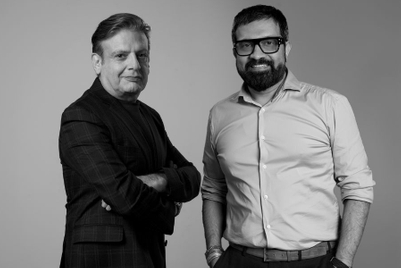
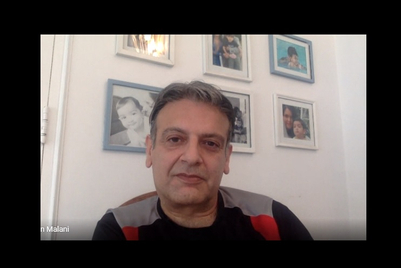
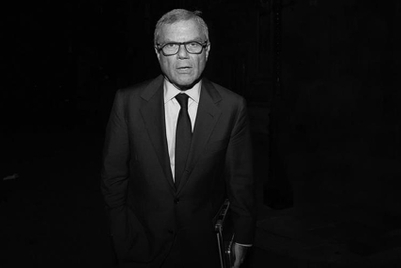
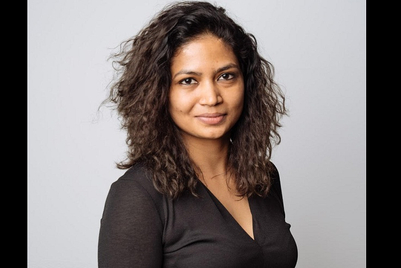

.jpg&h=268&w=401&q=100&v=20250320&c=1)

